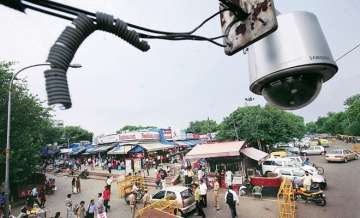Delhi HC expresses disappointment as police fails to trace missing children using facial recognition AI
The HC said that it was "most unacceptable" that the facial recognition software (FRS) adopted by Delhi Police after due diligence "has not borne any results" as it has "not helped in cracking any missing children case".

The Delhi High Court has termed as "unacceptable" that the facial recognition software adopted by the police has not helped in cracking any missing children case, as over 5,000 kids who disappeared from the national capital in last three years remain untraced.
A bench of Justices Hima Kohli and Manoj Kumar Ohri said such a large number of children going missing from Delhi and that too in a span of three years, was "a matter of grave concern".
It also termed as "most unacceptable" that the facial recognition software (FRS) adopted by Delhi Police after due diligence "has not borne any results" as it has "not helped in cracking any missing children case".
"We are told that use of facial recognition software has not helped in cracking any case of missing children so far, which comes as a surprise. It is most unacceptable that the software adopted by the Delhi Police after due diligence has not borne any results," the court said.
The Anti-Human Trafficking Unit (AHTU) of the Crime Branch, represented by Delhi government standing counsel (criminal) Rahul Mehra, had earlier told the bench that of the 19,916 children who went missing from the national capital in the last three years, 14,756 have been traced and reunited with their family.
It had also said that the remaining 5,160 children remained untraced.
Referring to the submission, the bench said, "It is a matter of concern that out of a total number of 19,916 cases of missing children, only 14,756 children have been traced and reunited with their family members whereas, 5,160 children are yet to be traced. Such a large number of children going missing in Delhi and that too in three years, is a matter of grave concern.
"These are voiceless children primarily belonging to the economically distressed strata of society with hardly anyone to take up their cause. The situation becomes more serious when the parents of such children who do not have the financial backup or any wherewithal, are left to run from pillar to post in search for their missing children."
The court also noted that the draft standard operating procedure (SOP), laying down the steps to be followed to trace missing children and reunite them with their families, did not carve out categories of different age groups and the procedure to be followed in respect of each category.
It said that a "uniform application of the SOP across all age groups could result in considerably delaying the recovery process".
Senior advocate H S Phoolka, appearing for NGO Bachpan Bachao Andolan, told the court that Delhi Police has not complied with its earlier orders to ensure presence of one exclusive officer in the Special Juvenile Police Unit stationed at every police station.
He also said that the Delhi Commission for Protection of Child Rights (DCPCR) was not monitoring the SOP required to be followed in cases of missing children.
Phoolka further told the court that the missing children cases were not being analysed to understand the pattern, motive and groups behind kidnapping of kids for ransom, child trafficking, maiming them and other illegal activities.
Delhi Police, meanwhile, told the bench that it has made efforts to segregate its law and order division from crime and investigation in various police stations.
It told the court that out of the 180 police stations in Delhi, necessary steps have been taken to establish two divisions -- one for law and order and other for crime and investigation -- in 30 of them on a pilot basis.
Taking note of the submission, the bench said, "Once, segregation between the two divisions takes place in all the police stations in Delhi, a dedicated team for tracking the missing children under the Crime and Investigation Division can be constituted at all the police stations."
"After segregation of the divisions, officers investigating such cases need to be equipped with adequate facilities besides imparting training, so that steps to trace the missing children can be initiated at the earliest, particularly, in the case of those who have a footprint in the social media.
"Where the missing children do not have any presence in social media, necessary alternate tools need to be identified for tracking them expeditiously," the bench added.
It also suggested to Delhi Police to establish in each station in each district, a 'missing persons desk' to "simplify procedures and cut red tape".
The central government was directed to try and simplify the procedure prescribed on its website -- www.trackthemissingchild.gov.in -- for tracing missing kids, as the court was told parents were unable to access the portal or get proper assistance.
The bench asked Mehra to hold a meeting of all the stakeholders, collate the inputs and to update the court about the progress made on the next date of hearing on February 25.
The directions and observations of the court came while hearing a man's plea seeking directions to the police to trace his minor daughter, who went missing in July, 2014.
The then 13-year-old girl went missing on July 21, 2014 and after she could not be traced for more than two-and-a-half years, the father moved the high court in May, 2017 and during the proceedings, the court also looked into the larger issue of kids going missing from Delhi.
The court had, subsequently, transferred the probe in the missing girl's case matter to the Anti-Human Trafficking Unit (AHTU) of the Delhi Police's Crime Branch. The girl is yet to be traced.
The bench has directed the AHTU "to continue taking concrete steps to trace the missing girl".